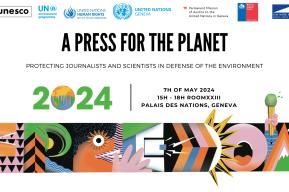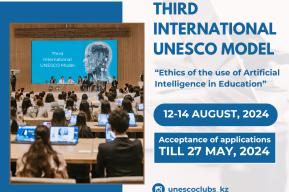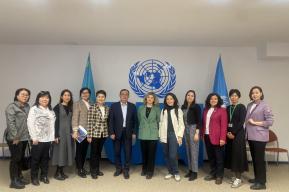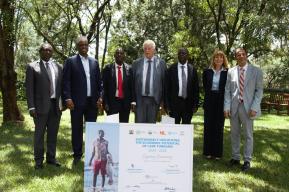Article
Five journalists awarded in 'AI Reporting Challenge' in Rwanda
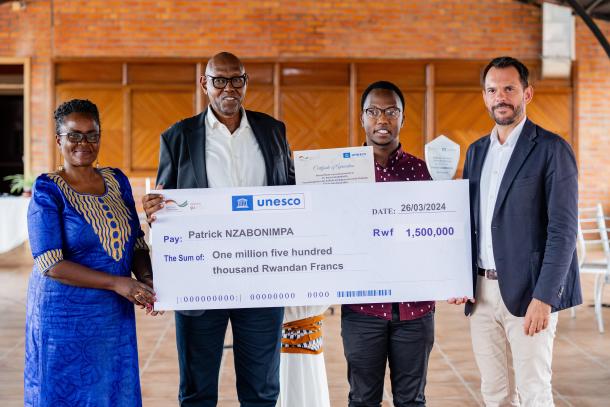
Rwandan journalists participated in the country’s first-ever Journalist Challenge for Reporting on Artificial Intelligence (AI). Targeting local media and content creators, the initiative was organized by the German Development Agency (GIZ) in partnership with Ministry of Information Communication Technology and Innovation (MINICT) and the UNESCO Regional Office for Eastern Africa.
The AI Journalist Challenge was organized to nurture and encourage high-quality coverage of AI and its related implications on society in Rwanda. The Challenge followed from a joint UNESCO-GIZ four-day workshop held earlier this year from 6-9 February 2024, where 14 local journalists were trained and upskilled on the foundations, ethics and best practices of AI and tech reporting.
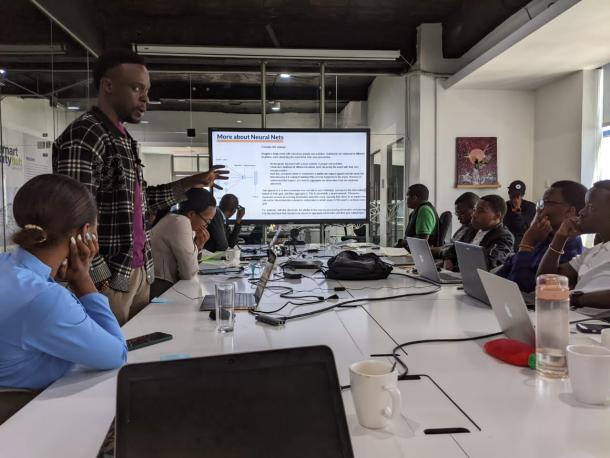
Since Rwanda’s adoption of its National AI Policy in 2022 as one of the first African countries to do so, the country has embarked on an ambitious journey to leverage AI as one of the country’s key enablers of sustainable development and establish Rwanda as an AI forerunner in the region. This requires first upskilling Rwandans and raising their awareness of the National AI Policy, the benefits and risks of AI, as well as its impacts on people’s lives.
Journalists and the media have always played a vital role in educating and informing citizens. They create the foundations for a strong knowledge society in Rwanda that is informed and engaged with the government’s implementation of the country’s AI plans, which ultimately aims to improve the lives of all Rwandans. It is for this reason that the government and its development partners are actively engaging and promoting quality AI journalism.
The AI training was quite eye-opening. It boosted my knowledge of artificial intelligence, and I got to know several areas where AI is being used in my country, Rwanda, as well as the potential applications of the technology. Moreover, I learned how AI can be applied in the newsroom to save time and ease work while the users maintain ethical standards.
However, existing circumstances in the local Rwandan media landscape have made reporting on AI difficult for local journalists. Some challenges include insufficient AI expertise and access to expert
networks, emerging ethical considerations of the use of AI in newsroom processes, the rise of deepfakes and “fake news”, as well as media viability. Moreover, AI terminologies often do not have established or credible translations in Kinyarwanda and other under-resourced African languages, which creates additional barriers for journalists trying to communicate effectively about the topic to the Rwandan public.
To support quality journalism on AI in Africa, UNESCO continues to enhance capacity-building efforts for journalists on AI reporting and advocate for greater multilingualism in cyberspace. In particular, the recently-concluded four-day journalist training in Kigali was based on UNESCO’s Handbook on Reporting on Artificial Intelligence, published under the International Programme for the Development of Communication (IPDC).
UNESCO is committed to continue provide its technical support and expertise for this kind of capacity building so that the global recommendations on AI Ethics and the different national policies are perfectly known and understood, are well oriented and coordinated towards a successfully implementation and impacts.
The AI Journalist Challenge is a first step to recognizing and promoting outstanding in-depth journalism work on AI development and its impact on Rwanda’s socio-economic development. As part of the Challenge, journalists were invited to submit entries on a variety of AI topics relevant to Rwandan society. Their stories were published and disseminated across a variety media channels, such news media, community radios and social media.
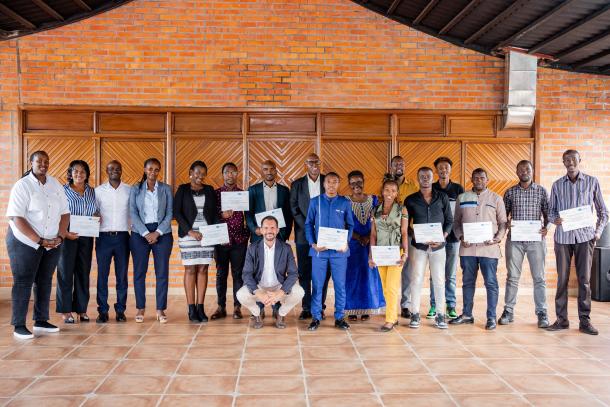
An expert jury comprising experienced professionals was responsible for evaluating the submitted stories. Entries were evaluated on accuracy, depth, clarity, and their potential to raise awareness about AI in Rwanda and its implementation.
Three winning journalists were recognized during the Award Ceremony held on March 26, 2024 at the Sainte Famille Hotel in Kigali. Two honorary mentions were also awarded.
Read the winning stories here:
- 1st Place Patrick NZABONIMPA: Mental health: Can AI-powered chatbots enhance access to care, combat stigma?
- 2nd Place Heritier BAHIZI: Gen AI implementation in Rwanda: Game-changer or cause for concern?
- 3rd Place Francine Andrew SARO: Integrating Artificial Intelligence with IoT, a worthy transformation for Rwanda’s Agricultural Revolution
Honorary Mentions:
- Jean Paul NIYONSHUTI: Ubwenge buremano: Ni umwanzi cyangwa ni umufasha wa muntu?
- Leontine INEZA: Bifashishije ubwenge buhangano (Artificial Intelligence), bakoze ikorabanuhanga ritangaje
UNESCO’s International Programme for the Development of Communication (IPDC) promotes media development within developing countries, countries in transition, and countries in conflict and post-conflict situations. As the only multilateral forum in the UN system designed to mobilize the international community around media development, the Programme provides support for media
projects while seeking accord to secure a healthy environment for the growth of free and pluralistic press.





